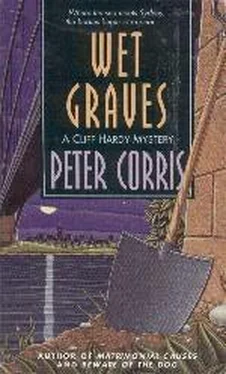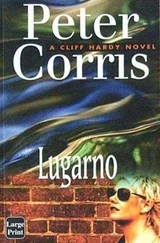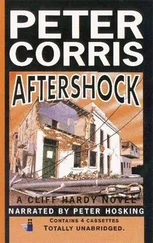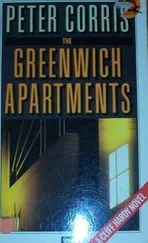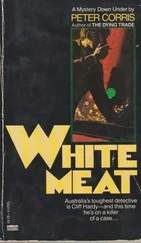Peter Corris - Wet Graves
Здесь есть возможность читать онлайн «Peter Corris - Wet Graves» весь текст электронной книги совершенно бесплатно (целиком полную версию без сокращений). В некоторых случаях можно слушать аудио, скачать через торрент в формате fb2 и присутствует краткое содержание. Жанр: Криминальный детектив, на английском языке. Описание произведения, (предисловие) а так же отзывы посетителей доступны на портале библиотеки ЛибКат.
- Название:Wet Graves
- Автор:
- Жанр:
- Год:неизвестен
- ISBN:нет данных
- Рейтинг книги:5 / 5. Голосов: 1
-
Избранное:Добавить в избранное
- Отзывы:
-
Ваша оценка:
- 100
- 1
- 2
- 3
- 4
- 5
Wet Graves: краткое содержание, описание и аннотация
Предлагаем к чтению аннотацию, описание, краткое содержание или предисловие (зависит от того, что написал сам автор книги «Wet Graves»). Если вы не нашли необходимую информацию о книге — напишите в комментариях, мы постараемся отыскать её.
Wet Graves — читать онлайн бесплатно полную книгу (весь текст) целиком
Ниже представлен текст книги, разбитый по страницам. Система сохранения места последней прочитанной страницы, позволяет с удобством читать онлайн бесплатно книгу «Wet Graves», без необходимости каждый раз заново искать на чём Вы остановились. Поставьте закладку, и сможете в любой момент перейти на страницу, на которой закончили чтение.
Интервал:
Закладка:
Pump Street was quiet and oddly dusty. The dust must have drifted from construction sites nearby and settled there, because there was no actual building work going on in the street itself. It gave the landscape an old-world, historical flavour, as if nothing much had changed since the streets were unpaved and there was more horse dung on the road than oil stains. I drove slowly along the street, turned at the end and looked for the laneway that usually runs behind rows of Sydney terraces. No laneway, or rather, there had been a lane but the red brick building I had noticed before, which I now identified as a bond store, had annexed it sometime in the past and there was now no back entrance to the houses. Not good. I didn’t want to be held up again by Betty Tracey nor to provide entertainment for the diversion-starved residents of Pump Street.
I parked opposite number 47, a few doors along from 43A, and saw the solution to my problem. At the end of the terrace, just before a series of semi-detached houses began, there was a narrow gap. I crossed the street and inspected the opening to a passage scarcely wide enough to squeeze through and not passable by anyone really bulky. All Alan Bond’s millions wouldn’t get him down there. I negotiated it, although I felt I had to hold my breath and suck in my stomach. Also I had to twist myself sideways to make the turn where the passage went right, parallel to the street and behind the houses. The opposing wall was high and brick, part of the lane-annexing bond store. The back-yards to the houses were almost non-existent-tiny, bricked or cemented squares with brick outhouse toilets, not even enough space for a Hills Hoist. There were wooden fences, much patched with galvanised iron and other materials and gates from the lane, opening in towards the houses. With the gate open, a rubbish bin in place and a six-pack, the yard would be full to capacity.
Some of the gates had listed so badly they were immovable; the hinges on others had rusted solid; a few had been nailed or boarded shut or simply built over. By squinting up at the backs of the houses and trying to calculate where the divisions of the terrace fell, I reckoned I was able to distinguish the back of number 43A. The house differed in no way from the others-same rusty iron roof, drooping guttering and water-stained walls. But the gate was firm on its posts and the hinges had been recently oiled. The paving in the lane was a sort of cobblestone that had cracked and lifted in places, further impeding the opening of the gates. But at the gate of 43A the paving had been mended, pounded flat. My theory, that someone had been listening in the house when I’d made my enquiry about Stan Livermore and had had the time and means to leave and kill old Stan, was looking stronger. Look for a lean man, I thought, with an oilcan and a mallet.
I braced my back against the brick wall and inched my feet up the solid gatepost until I was high enough to straddle the gate and climb over. The gate had a simple barrel bolt which I slid back experimentally-smooth as silk. I left it open and approached the house. A short light access on the right-hand side, narrow set of brick steps to the back door, and a decayed, unfastened flywire screen with too many holes in it to keep flies out, let alone trouble burglars. On the solid door was a mortised lock, old and loose. A jiggle with a piece of thin metal (plastic never works for me), a downward pressure and twist on the handle, and I had the door open. Not exactly a break and enter, more a bend and enter.
I was in a small back porch which had been boarded up and provided with a couple of small windows. There was a narrow bed and about a seventh-hand cup-board; a cardboard box by the bed contained dirty socks and several copies of a racing tip sheet. Somehow this didn’t look like the room of the late Stan Livermore, secretary of the Veterans of the Bridge Society. I went through a curtained doorway to the kitchen, which was like old kitchens everywhere in the city-lino on the surfaces, brass on the plumbing and cockroaches in the woodwork. There was a smell of some sort in the air, vaguely sweet and recognisable. The stove was still hot and I found an empty Rosella tomato soup can in a bucket under the sink. Memories of a Sydney boyhood. We used to pour a bit into the mugs, top up the can with milk and heat it. No saucepans, no spoons. Some-where in this house was a traditionalist.
I moved through to the passage which led to the stairs. I know these kinds of houses. On ground level there’d be a front room, with the window opening onto the street, and two rooms upstairs. A bath-room off the landing. The verandah to the front room up top would be built-in, like the porch below. During the Depression these houses slept up to twenty people. My guess was that Betty Tracey occupied the front room by the door. That’d give her the greatest control over the movements of the people in the house. First grab at visitors and the mail, best snoop at the street. I went quietly down to the door and listened but there was no sound. No chance of Betty being the soup eater, I was pretty sure you’d be able to hear her at it from the backyard.
That left the stairs, which from the look of them-ricketty treads, gap-toothed banisters, lifting lino-would certainly creak. No chance of surprise. I marched up the first flight calling, “Mr Livermore. Mr Livermore! Are you in?”
A man appeared at the top of the stairs. “Who are you?” he said. “How did you get in here?”
“Mrs Tracey let me in. I met her outside.” I waved my hand in the direction of the street. “I paid her five dollars and she let me in.”
“Five dollars, mmm. That’ll keep her happy in the pub for a few hours.” He came down the stairs far enough into the dim light to enable me to see him. Bald, sixty maybe, strong-looking, in a heavy cable-knit sweater and flannel trousers. “Didn’t she tell you Mr Livermore was dead?”
“No. No, she didn’t. I’m sorry to hear that. Recently, was it?”
“The other day. She’s a shameless old extortionist. That’s what she is. Well, afraid that’s the way of it.”
“Ah, I’m a journalist. Brian Kelly. I was hoping to talk to Mr Livermore about the Veterans of the Bridge Society. Thought there might be a piece in it, you know. Mr…?”
“Lithgow, Charles Lithgow. A journalist, eh? I’m a bit of a writer myself. Who d’you write for, Mr Kelly?”
“Freelance.” I went up a few more steps; he came down a few and we shook hands. He had a hard, calloused hand, very strong grip. “That’s a pity. There’s a lot of interest in the bridge, what with the tunnel going through and the toll going up.” I tried a smile.
Mr Lithgow’s slightly wrinkled but composed features arranged themselves in a corresponding smile. “It’s a shame you missed him. I really enjoyed talking to him myself. I’m sure he had a lot of memorabilia, in fact I know he had. His room’s full of it.” He gestured above and behind him. “Would you like to see it?”
“Do you think that’d be all right?”
Lithgow retreated a few steps. “I’m sure it would. All he lived for, really. Poor old chap. I’m sure he’d be pleased there was someone taking an interest.”
We went up the stairs, past the landing, to the top floor. The light improved a little, coming in through a room with an open door. Lithgow pointed to the closed door opposite. “Stan’s room.”
“No family or friends to…” I shrugged, “handle his affairs?”
Lithgow opened the door. “Apparently not. Lonely old soul, apart from the members of his society, of course.”
“Many of them?”
“A few.”
I felt strangely reluctant to go into the dead man’s room. I was disconcerted by Lithgow’s manner. His clothes weren’t expensive and he wore a slightly shabby air but he smelled very clean. His voice was clear and his accent was precise; he sounded old-fashioned rather than well-educated, almost as if he’d picked up a set of mannerisms from a play or a book. “Not a member of the society yourself, Mr Lithgow?”
Читать дальшеИнтервал:
Закладка:
Похожие книги на «Wet Graves»
Представляем Вашему вниманию похожие книги на «Wet Graves» списком для выбора. Мы отобрали схожую по названию и смыслу литературу в надежде предоставить читателям больше вариантов отыскать новые, интересные, ещё непрочитанные произведения.
Обсуждение, отзывы о книге «Wet Graves» и просто собственные мнения читателей. Оставьте ваши комментарии, напишите, что Вы думаете о произведении, его смысле или главных героях. Укажите что конкретно понравилось, а что нет, и почему Вы так считаете.
